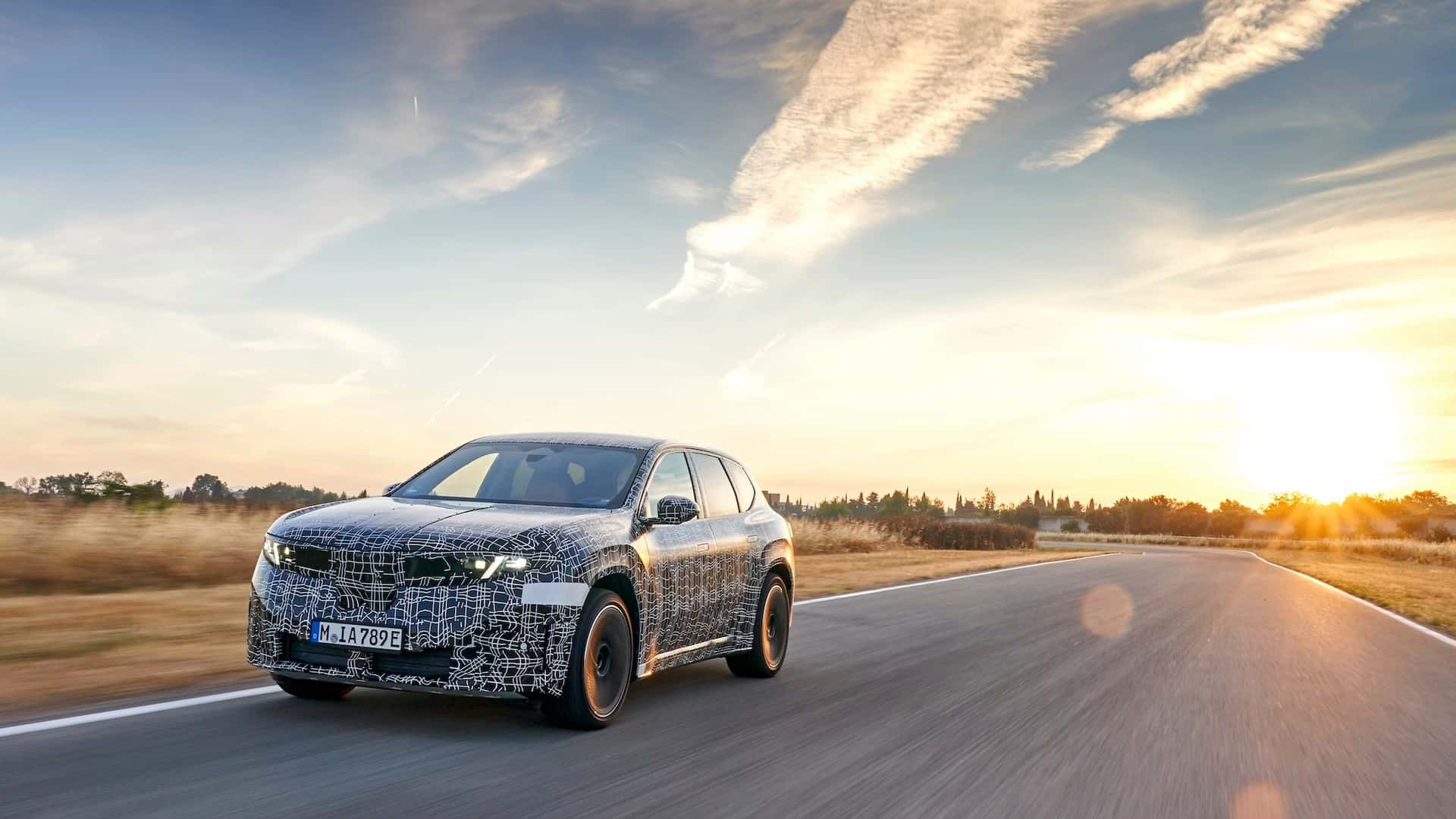
- BMW says its new iX3 50 xDrive will be responsible for lower emissions than a comparable model with a combustion engine after about 21,500 kilometers—about 13,360 miles.
- That's about a year of driving for most people.
- BMW even says that this is true when the iX3 is charged with electricity from the European energy mix, which includes a mix of renewable and fossil-fuel sources.
Even after years of research to the contrary, many people still believe electric vehicles are "worse" for the environment than gas-powered ones. While it's certainly true that battery manufacturing is a nasty business, over the car's lifetime, an EV's lack of tailpipe emissions makes it a greener option over any gas-powered one.
Usually, that breakeven point for CO2 emissions happens within the first two to four years of driving the EV. But BMW says it's got that down to just one year—and on a brand-new car with a pretty substantial battery pack, too.
The automaker announced that due to its efforts in improving the end-to-end supply chain for its EVs, the upcoming electric BMW iX3 will have a lower CO2 footprint than a comparable gas SUV after just 21,500 kilometers—roughly 13,360 miles, or about what the average American drives in a year.
This is on top of the fact that the iX3 will also be something of an efficiency monster, aiming for an energy consumption figure of about 4.14 miles per kilowatt-hour. (Typically, InsideEVs testing ranks anything over 3.5 miles per kWh as "good," while the Lucid Air has achieved a landmark 5.0 miles per kWh.)
In other words, for a new luxury SUV packing a roughly 100 kWh battery pack—bigger than that of a Tesla Model Y, for context—the iX3 should be great at being both efficient and green.
Gallery: 2026 BMW iX3 Prototype Drive







"During product development, extensive measures were implemented throughout the supply chain, production and use phases, explicitly focused on conserving resources and reducing the model’s environmental footprint," the German automaker said in a statement, calling its Neue Klasse EV platform "an important milestone" for meeting its long-term CO2 targets.
With the iX3, BMW said it achieved this by using more renewable energy sources in production, more "secondary materials" (i.e. ones made from recycled and recovered materials) and various other process improvements. And BMW's new Gen6 batteries, which power the iX3, has far more secondary components of their own and are responsible for 42% fewer CO₂e emissions per watt hour than previous batteries.
That mileage figure is also based on an iX3 charging using the European energy grid, which is a mix of fossil fuels, nuclear energy, and renewable energy sources. While an EV has no tailpipe emissions, how "green" it is also depends on the local electricity grid; more renewable sources like solar and wind make for a cleaner car overall.
But as a BloombergNEF analysis found last year, EVs end up as the cleaner option in terms of lifetime CO2 emissions, no matter where they're sold. On the iX3, various new components help the entire car to do better than past EVs, too.
"The energy consumption of the new BMW iX3 is 20% lower than in the predecessor model," BMW officials said. "This significant improvement is primarily based on optimized aerodynamic properties, reduced rolling resistance and on-board power consumption as well as the drive’s unparalleled combination of efficiency and dynamics."
All in all, the new iX3 looks to be an extremely promising EV: built on a new, from-the-ground-up platform, packing powerful processors and an innovative new software suite, aiming for almost 500 miles of range on Europe's WLTP cycle, and all the performance one would expect from a car with a BMW badge. More cars on the Neue Klasse platform will follow, including a sedan believed to be called the i3 and a high-performance coupe.
The iX3 will be revealed in production form next month at the International Motor Show in Munich, Germany. Maybe with all these impressive specs, it'll finally help to dispel some pervasive myths about how clean EVs can really be.
Contact the author: patrick.george@insideevs.com







